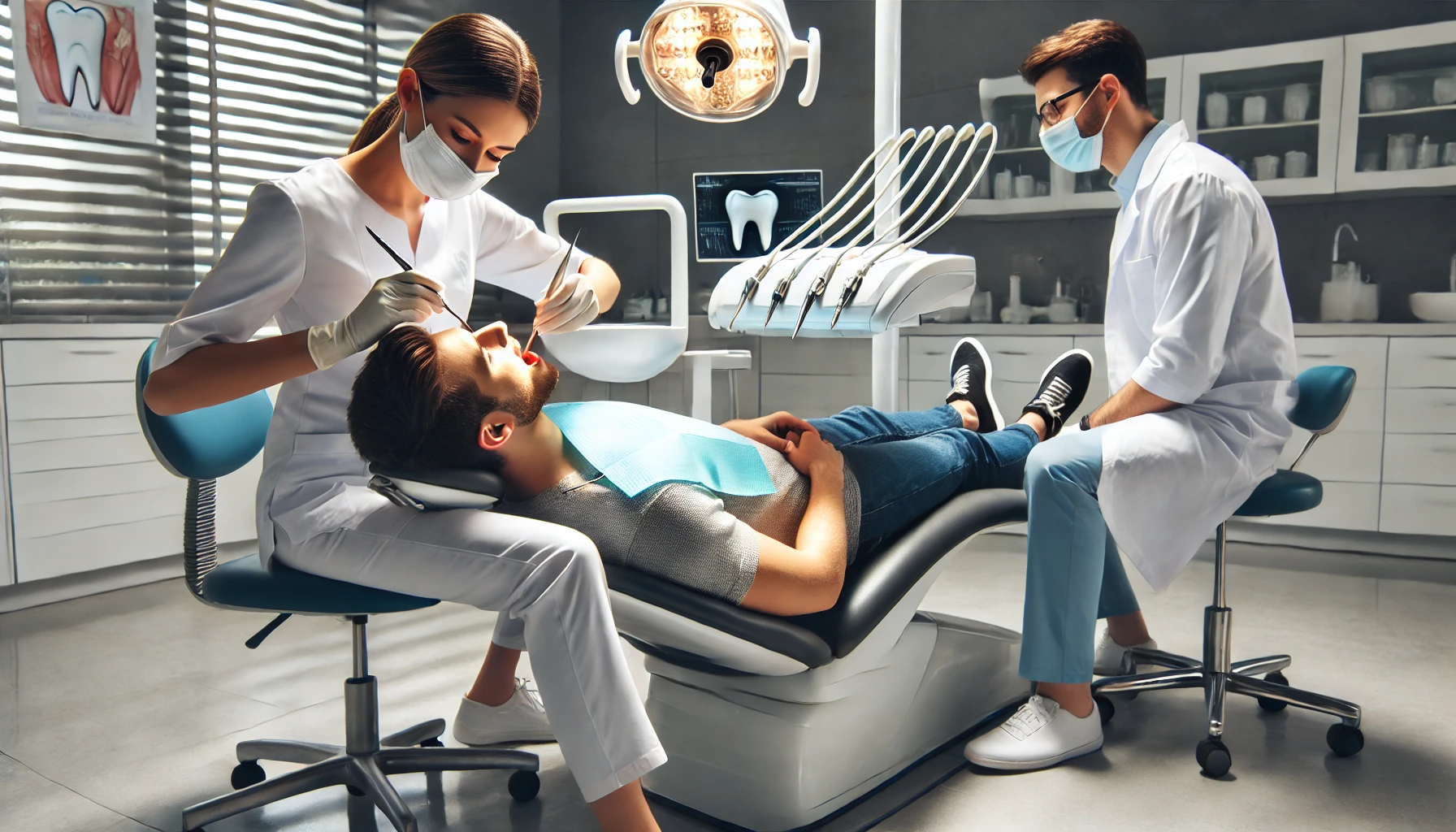Experiencing a headache after eating can be both frustrating and concerning. This post-meal discomfort is more common than you might think and can arise from various factors, including dietary choices, underlying health conditions, and even stress. In this comprehensive guide, we’ll explore the potential causes, provide management tips, and discuss preventive measures to help you better understand and deal with headaches after meals.
What Causes a Headache After Eating?
Several factors could lead to a headache after eating. Identifying the root cause is essential to manage this issue effectively. Here are some common reasons:
Food Sensitivities and Allergies
Certain food sensitivities, such as to gluten, dairy, or artificial additives, can trigger headaches. In some cases, an allergic reaction might occur, releasing histamines that contribute to head pain. This response can vary widely depending on individual tolerance levels.
Blood Sugar Imbalances
Fluctuations in blood sugar levels are another major cause of headaches after eating. Consuming high-sugar or high-carb meals can cause a rapid spike in blood sugar, followed by a sharp drop, which may result in hypoglycemia. This can lead to headaches, fatigue, and dizziness.
Dehydration and Salt Imbalance
Eating salty foods without adequate hydration can lead to dehydration, a well-known headache trigger. The imbalance in salt levels may also affect blood pressure, contributing to discomfort.
Caffeine and Alcohol Consumption
Both caffeine and alcohol have the potential to cause headaches after meals. Caffeine withdrawal, when combined with reduced intake or elimination after regular use, may result in headaches. Similarly, alcohol can cause dehydration and dilate blood vessels, which might lead to head pain.
Tyramine and Histamine in Foods
Certain foods, including aged cheeses, processed meats, and fermented products, contain high levels of tyramine or histamine. These compounds can affect blood vessels and neurotransmitter activity, potentially leading to headaches.
Health Conditions Linked to Post-Meal Headaches
Migraines
For individuals prone to migraines, specific foods and eating patterns can act as triggers. Often, this is due to a combination of factors such as stress, hormonal changes, or sensory triggers, which might be exacerbated by certain dietary components.
Gastroesophageal Reflux Disease (GERD)
GERD is another condition that can be linked to headaches after eating. Acid reflux may cause discomfort that radiates to the head, leading to post-meal headaches, especially if large or rich meals are consumed.
Hypertension
Elevated blood pressure levels, particularly after consuming salty or processed foods, may result in headaches. This is especially relevant for individuals with a history of hypertension.
Hypoglycemia
Low blood sugar levels, especially following meals high in refined carbohydrates, can lead to hypoglycemia-induced headaches. The brain relies on a steady supply of glucose, and sudden drops can cause symptoms such as dizziness, confusion, and head pain.
How to Identify Your Triggers
Keeping a Food Diary
Maintaining a food diary is an effective way to track meals and correlate them with headache occurrences. Record what you eat, the time of day, and any symptoms that follow. Over time, patterns may emerge, helping to pinpoint specific triggers.
Monitoring Blood Sugar Levels
For those suspecting blood sugar fluctuations, regularly monitoring levels can provide insight. Devices like continuous glucose monitors (CGMs) or traditional glucometers can be used to detect spikes and drops, offering valuable information.
Allergy Testing
If food allergies or sensitivities are suspected, consider undergoing professional allergy testing. This can help identify problematic foods and provide guidance on dietary adjustments.
Managing Headache After Eating
Staying Hydrated
Proper hydration is crucial for overall health and can significantly reduce the likelihood of headaches. Drinking water before, during, and after meals helps maintain fluid balance and supports digestion.
Balanced Meals
Consuming balanced meals that include a mix of protein, healthy fats, and complex carbohydrates can help stabilize blood sugar levels. Avoiding large portions of refined sugars or processed foods is equally important.
Avoiding Known Triggers
Once specific headache triggers are identified, avoiding or minimizing their intake is key. For instance, individuals sensitive to tyramine may need to limit their consumption of aged cheeses or cured meats.
Small, Frequent Meals
Eating smaller, more frequent meals can prevent large spikes or drops in blood sugar. This approach can be particularly beneficial for those prone to hypoglycemia.
Natural Remedies for Relief
Ginger Tea
Ginger has natural anti-inflammatory properties and can be effective in reducing headache symptoms. Sipping ginger tea after a meal may provide relief and aid digestion.
Peppermint Oil
Applying diluted peppermint oil to the temples can help alleviate headache pain. Its cooling effect can provide a soothing sensation, especially for tension-related headaches.
Relaxation Techniques
Stress and tension can exacerbate headaches. Practicing relaxation techniques such as deep breathing, meditation, or gentle yoga can help reduce stress levels and prevent headaches.
When to Seek Medical Attention
While occasional headaches after eating may not be a cause for concern, recurring or severe headaches should be evaluated by a healthcare professional. Persistent symptoms may indicate an underlying condition that requires medical intervention. Additionally, if headaches are accompanied by other symptoms such as blurred vision, severe nausea, or difficulty breathing, immediate medical attention is necessary.
FAQs
Can dehydration cause a headache after eating?
Yes, dehydration is a common cause of post-meal headaches, especially when consuming salty foods. Staying hydrated helps prevent this.
What foods are most likely to trigger headaches?
Common triggers include aged cheeses, processed meats, foods high in sugar, and those containing artificial additives or caffeine.
How can I tell if my headache after eating is related to blood sugar?
Symptoms such as dizziness, confusion, and sudden fatigue may accompany a blood sugar-related headache. Monitoring levels can help confirm this.
Are there specific conditions linked to headaches after eating?
Yes, conditions like migraines, GERD, hypertension, and hypoglycemia can be associated with post-meal headaches.
Can food allergies cause headaches?
Yes, food allergies or sensitivities can trigger headaches by causing an inflammatory response in the body.
Is it possible to prevent headaches after eating?
Identifying and avoiding personal triggers, maintaining hydration, and consuming balanced meals are effective preventive measures.
What natural remedies can help with headaches after eating?
Ginger tea, peppermint oil, and relaxation techniques are some natural remedies that may provide relief.
Conclusion
Experiencing a headache after eating can disrupt your daily life, but understanding the potential causes and implementing preventive strategies can make a significant difference. By identifying triggers, maintaining hydration, and balancing your meals, you can reduce the frequency and severity of these headaches. If symptoms persist, consulting a healthcare professional is crucial to rule out underlying conditions and ensure effective management.






